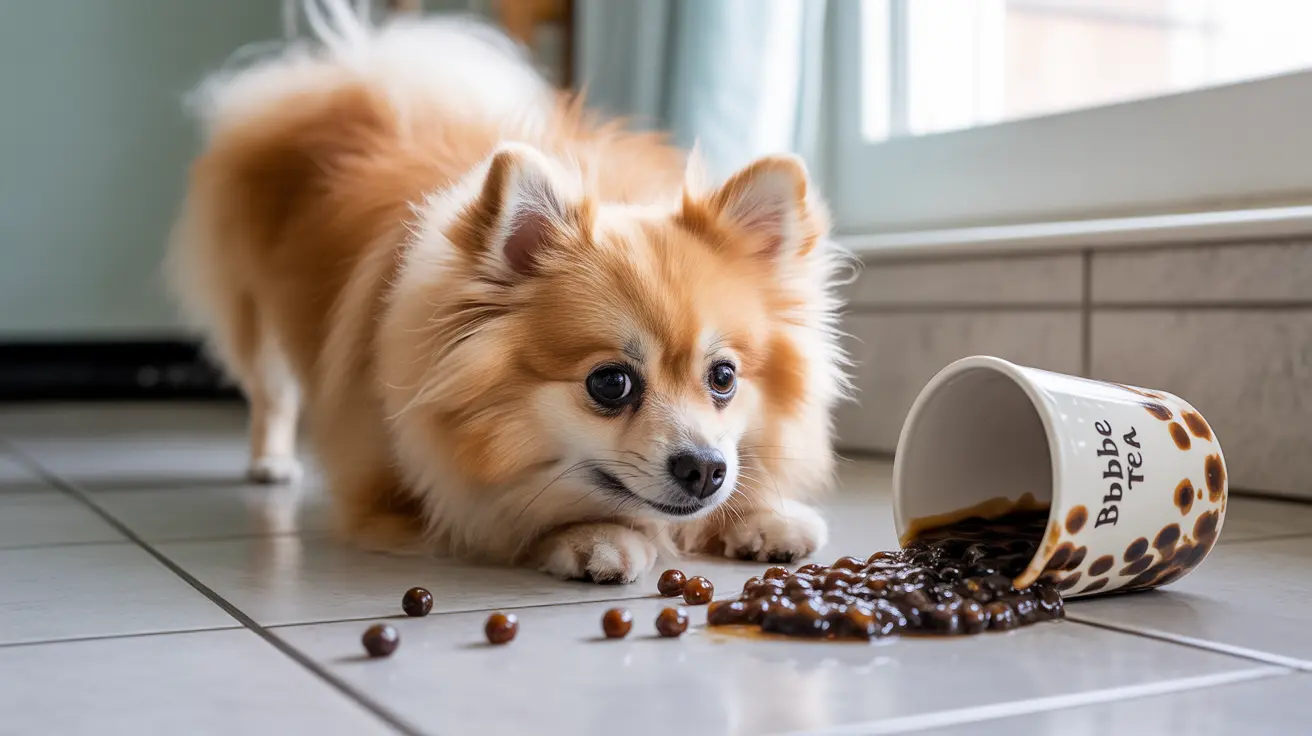As bubble tea continues to grow in popularity, many pet owners wonder if they can share this trendy treat with their furry friends. However, the question "can dogs have boba?" comes with some serious health and safety considerations that every dog owner needs to understand.
In this comprehensive guide, we'll explore why boba tea poses significant risks to dogs, what makes its ingredients dangerous, and how to keep your pet safe while still offering them enjoyable treats.
Understanding Boba Tea and Its Components
Boba tea, also known as bubble tea, consists of several ingredients that can be harmful to dogs. The main components include:
- Tapioca pearls (made from cassava root)
- Tea (usually black or green)
- Milk or non-dairy creamer
- Sweeteners and flavoring syrups
- Ice
Why Boba Tea Is Dangerous for Dogs
Caffeine Toxicity
The tea base in boba contains caffeine, which is toxic to dogs. Even small amounts can cause:
- Restlessness and anxiety
- Rapid heart rate
- Tremors
- Seizures in severe cases
Dairy-Related Issues
Most adult dogs are lactose intolerant, making the milk in boba tea problematic. Consumption can lead to:
- Severe stomach upset
- Diarrhea
- Vomiting
- Abdominal pain
Sugar Content Concerns
The high sugar content in boba tea can cause:
- Weight gain
- Dental problems
- Diabetes risk
- Metabolic issues
The Dangers of Tapioca Pearls
The signature pearls in boba tea present several risks:
- Choking hazard, especially for smaller dogs
- Potential intestinal blockage
- Empty calories with no nutritional value
- Risk of toxicity if pearls are undercooked
What to Do If Your Dog Consumes Boba
If your dog accidentally drinks boba tea or eats tapioca pearls, take these steps:
- Monitor for immediate choking or breathing difficulties
- Watch for signs of caffeine toxicity
- Contact your veterinarian if you notice:
- Excessive thirst or urination
- Vomiting or diarrhea
- Unusual behavior or lethargy
- Difficulty breathing
Safe Alternatives for Dogs
Instead of boba tea, consider these dog-safe treats:
- Frozen blueberries
- Small pieces of apple (without seeds)
- Plain, low-fat yogurt
- Pet-specific "smoothies"
- Ice cubes made with low-sodium chicken broth
Frequently Asked Questions
Can dogs safely eat the tapioca pearls found in boba tea?
No, tapioca pearls pose a choking hazard and offer no nutritional value for dogs. They can also cause intestinal blockages if consumed in large quantities.
Why is bubble tea considered unsafe for dogs to drink?
Bubble tea contains multiple harmful ingredients for dogs, including caffeine, sugar, dairy products, and artificial sweeteners. The tapioca pearls also present choking and digestive risks.
What health risks does caffeine and lactose in boba tea pose to dogs?
Caffeine can cause toxicity leading to restlessness, irregular heartbeat, and seizures. Lactose can trigger severe digestive issues including diarrhea, vomiting, and stomach pain in lactose-intolerant dogs.
Are there any safe homemade "boba" treat alternatives for dogs?
Yes, you can create dog-safe alternatives using frozen blueberries, plain yogurt, and pet-safe ingredients. Always avoid caffeine, artificial sweeteners, and excessive sugar.
What should I do if my dog accidentally swallows boba pearls or bubble tea?
Monitor your dog for signs of choking, caffeine toxicity, or digestive issues. Contact your veterinarian immediately if you notice any concerning symptoms.
Keep your dog safe by avoiding boba tea and its components entirely. Instead, focus on providing treats specifically designed for canine consumption and always consult with your veterinarian about appropriate treats for your pet.






